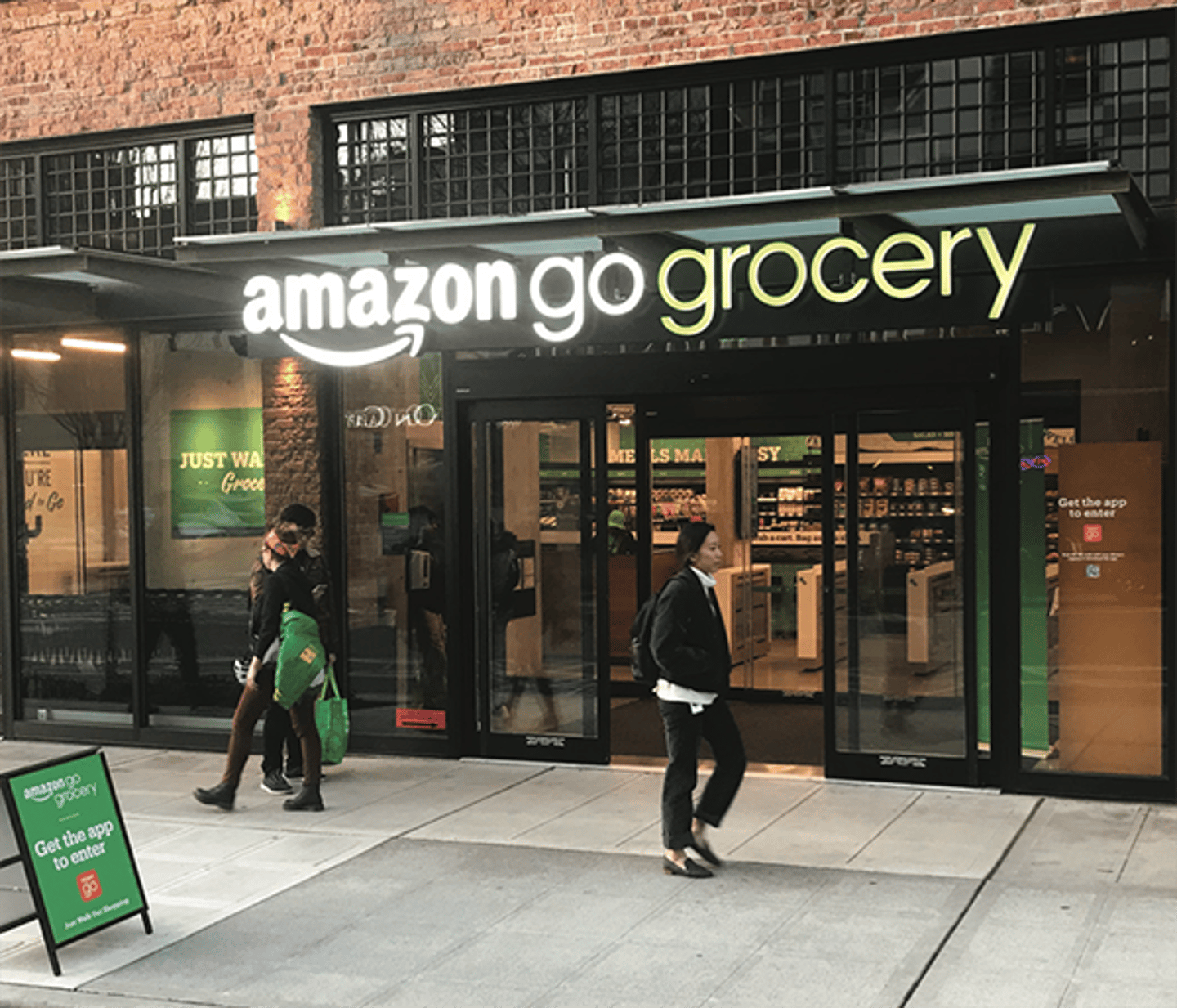Special report: Lifestyle brands spice up the industry
Private labels are no longer labels. They are brands. And in some cases, even more specifically, “lifestyle brands.”
This is the term Mark McKeown, a principal with IRI, said his research firm, along with FMI — The Food Industry Association, devised to recognize the power of retailer store brands that cross categories, aisles and departments.
“That’s a significant competitive advantage for the retailer,” McKeown said. “If they’re competing against other retailers, and let’s say Kroger can execute Simple Truth, and do that across multiple categories, then a consumer will trust that brand when they go into a new category because they’ve had a great experience with that brand in maybe eight or 10 other categories in the store.”
Thus is the state of the private label industry. Even as private label becomes a permanent part of most mass retailers’ merchandising strategies — and grow to generate as much as 25% of total store sales — retailers and suppliers continue to dance around how they can do even more for the category.
A New Niche
As McKeown noted, the idea of private labels becoming lifestyle brands stemmed from retailers being first to offer organic, natural products across categories, such as Kroger’s Simple Truth, Albertsons’ O Organics or Whole Foods’ 365 Everyday Value. But to be a lifestyle brand it must also be a representation of a premium, trusted offering. He cited Target’s Good & Gather as a premium lifestyle label, and said Costco’s Kirkland has set the bar by successfully delivering on quality across categories.
It is extremely clear — even to the casual observer — that the private label industry is becoming more sophisticated and complex. Consumers want more from private label. More importantly, perhaps, retailers are demanding more from the category, not only in prices and assortment, but in perceived sophistication of the product.
For example, another trend growing within the lifestyle trend is a move away from private brands carrying the name of the retailer, but being more of a fully realized stand-alone brand, and simplifying those brands into a nonfood label and a food label.
Wakefern recently introduced Bowl & Basket as its food line and Paperbird as its nonfood line in its ShopRite stores. In a recent Store Brands profile on ShopRite, Chris Skyers, vice president of private label and own brands for the banner’s parent company Wakefern Food, said consumer research pointed them to this separation. “That was a unique learning for us. We realized that diapers and milk didn’t go well together under [the same store brand] for many consumers,” he said.
Similarly, as profiled in the February issue of Store Brands, 7-Eleven has defined its private brands in two lines: 7-Select for food and 24/7 Life in nonfoods.
McKeown said, “absolutely, yes,” there will be more retailers following this trend, because it’s putting the focus on the consumer. “It’s all about the consumer,” he said. “It’s shopper driven, as opposed to product driven.
Chris Perry, vice president of education at Edge by Ascential, agreed with McKeown. “It’s critical to first highlight that private label is not defined by the brandless, value retail plays of yesterday, but increasingly manifesting itself as “private brand,” fully and uniquely branded, on-trend and exclusive offerings that meet consumer needs in value, equity and/or benefits not currently being met by the national brands,” he said.
Karen Strauss, a principal with Cadent Consulting Group, also identified this change in identity as the leading trend in the state of the industry. “Shoppers go to specific stores for a private label brand,” she noted. “They have very strong equities, they have clear positioning, they deliver on tiers: high price, mid price, low price. The packaging is not that white label can anymore, it’s real packaging with real branding and real communication elements.”
She said the success of discount retailers Aldi and Trader Joe’s, whose goods are majority private label, also have helped usher in the trend for lifestyle brands, and Millennials are shopping more at those retailers. In beauty, retailers like Ulta Beauty, Sally Beauty Supply and Sephora are having a similar impact.
Perry said the “sameness” in store assortment is one reason for this change. According to a private label report from Daymon, “Winning in the Center Store,” 98% of the national-brand assortment in mass merchants and grocers is the same. Perry also noted that private brands help differentiate retail assortment and add a new motivation for shoppers to enter their stores.
He said private brands also are seeing growth, including a compound annual growth rate that’s two-and-a-half times larger than national brands, per Nielsen, because retailers have more relationships with private brand suppliers that enable them to build quicker, more agile innovation cycles, and the expansion of private brands helps improve the retailer’s overall margin and growth.
The State of Supplier Relationships
With this success though, what kind of stress is being put onto the relationship between retailer and private brand supplier?
McKeown says the first thing suppliers need to do is to start thinking more like the brand they represent, admitting that it’s tough to change when a supplier has been using the word “label” for 30 to 40 years.
“That’s the first change, is getting the private brand suppliers to start talking about their customers brands and thinking about them the same way,” he said. “They are a brand.”
After that, there is a big issue over supply and demand. Retailers need to work with multiple manufacturers to keep up with the demand for products in their private label lines, especially those that fall under the clean label, fair trade, organic and sustainable categories. “I think you might find a different contractual and partnership agreement between the supplier and the retailer in those tiers,” he said.
Steven Howell, a consultant with Solutions for Retail Brands, a software and consulting company that works with private brand manufacturers, said the suppliers are the true experts in their categories and retailers should lean on them more for insights. A lot of the company’s work is with retailers whose private brand missions include organic, premium, fresh and sustainability.
Solutions for Retail Brands recently did a survey with FMI called “The State of Retailer and Private Brand Supplier Engagement,” which found that attitudes between suppliers and retailers has shifted considerably. “Retailers that can systemize the creation of efficient and effective collaborative retail and supplier partnerships at a large enough scale to impact the bottom line will develop more successful private brand products,” Howell said.
One improved way to build the relationship was for more retailers to work with suppliers as one team to increase engagement and challenge innovation. He said the survey showed that retailers that put more importance on a one-team strategy that centers on collaboration, accessibility and openness — rather than focusing on pricing pressures — see less strain in the relationship.
According to the study, 98% of respondents “strongly agreed” with the statement: Improved retailer and supplier engagement would help to further drive private brand performance. “Suppliers believe there is a tremendous opportunity to drive private brand growth by having retailers and manufacturers form true partnerships,” Howell said. “This means they share the risks and they share the rewards, and both are in it for the long haul.”
The GPO Threat
Just before the New Year, Walgreens Boots Alliance and Kroger shook the industry when it agreed to form a group purchasing organization that essentially empowers the two retailers to buy together and source jointly for their store brands products.
To some suppliers, this could be seen as a scary trend. “I could only imagine that most suppliers are likely displeased about this development,” Howell said. “When Carrefour and Tesco joined buying power in a 2018 alliance, suppliers [said in a Reuters report] that the move threatened their survival.”
Through the GPO, Walgreens and Kroger will be able to buy from private label suppliers at a higher volume and negotiate discounts. In addition, the companies can leverage resources from one another, including Kroger’s 37 manufacturing facilities (where it manufactures some of its own brands) that Walgreens can potentially use, and WBA’s sourcing company in Hong Kong that Kroger can leverage.
“Through this unique joint venture, Walgreens and Kroger have the opportunity to use our collective resources to create efficiencies across our supply chains,” said Alex Gourlay, co-COO of Walgreens Boots Alliance when the announcement was made. “This collaboration will also enhance our ability to drive innovation for customers, including both of our private label brands, to further meet their evolving needs for value and convenience.”
Howell said hotels and foodservice firms tend to enter similar agreements, as do small and mid-sized buyers within specific product categories.
McKeown is interested to see how the GPO will play out among suppliers, as it’s still very early, questioning whether the retailers teamed up to create scale for their own businesses or did they team up to get scale to put pressure on a supplier trying to decide on who to do business with. “That supplier will say, I’d rather do business with those two rather than to have to do business with 10 separate retailers to try and get that same share of market,” he noted.
Amazon, Digital
With Amazon rolling out its first 10,000-plus-sq.-ft. cashier-less grocery store called Amazon Go Grocery, and preparing to introduce full-scale grocery locations in Woodland Hills, Calif., and Naperville, Ill., there are questions on how the retailer will present a private brand advantage.
For the supplier community, it’s more opportunity. Perry said suppliers, if not doing so already, may want to consider launching their own private brands on the Amazon marketplace as both another revenue source, a capability development opportunity, and as an investment for potential future exclusive brand partnership.
Strauss said it will be interesting to see what happens with Amazon in the year ahead, how it will impact its Whole Foods operation, but mostly how the company utilizes digital and brick-and-mortar. “They want to be where the shoppers are, and they know that at least in the near-term future, brick-and-mortar and online shopping are going to coexist.”
In this scenario, Strauss added that a larger opportunity for private brands will be leveraging the company’s omnichannel presence. He noted that retailers no longer can garner awareness simply through a TV ad or a famous spokesperson. They now must effectively use social media tools — Facebook and Instagram, as well as influencers — to get in front of shoppers with private brands.
Beyond marketing on other sites, getting seen on Amazon is another challenge. Edge by Ascential’s Perry said that on Amazon, 64% of clicks go through the top three search results and 81% go through the first page. Private brands need to win that search.
“Where an Amazon and other retailers on their respective retail marketplace sites have the advantage is that they have all the shopper and sales data and control the merchandising placements,” he said, adding that retailers can use this information to get their private lifestyle brands to lead on category pages, in searches and in targeted marketing or digital promotions. “They know what the shoppers want and buy, as well as what helps convert those shoppers.”







